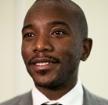South Africa’s riches are above the ground, not below it
24 September 2016
Note to Editors: The following remarks were delivered by the DA Leader during the Party’s event to mark Heritage Day at George Harrison Park, Johannesburg. The Leader was joined by by DA Gauteng Leader, John Moodey MPL, DA Johannesburg Regional Chairperson, Khume Ramulifho MPL, and Johannesburg Executive Mayor, Herman Mashaba.
My fellow South Africans
Today millions of South Africans across the country will celebrate our many cultures, beliefs and traditions.
But while many of these aspects of our heritage are unique to specific groups, there are also parts of our heritage that tie our histories and our fates together. And one of these is mining.
So much of our country’s history is defined by mining. Johannesburg – this City of Gold – was built on the mineral riches that lie beneath our feet.
Just as people flocked to these mines from across Southern Africa throughout the 20th century, Johannesburg still draws people from all over with the prospect of a better life.
But our mining heritage is not just one of progress and wealth. As with almost everything in South Africa, there are two very different sides to this story.
The discovery of gold here might have set Johannesburg on an incredible trajectory and brought great wealth to some, but it also brought with it hardship and pain to many others.
Throughout the 20th century countless men from all over Southern Africa left their wives and children behind to earn a living on these mines. The family unit was left in tatters.
These migrant workers ended up living double lives: Back home they were loved fathers, husbands and sons, but on the mines they were often treated inhumanely.
Over the past century, our mines have seen some of the most brutal clashes between government and civilians in the history of our country, including the tragic events of 16 August 2012 where 34 miners were gunned down by the police at Marikana.
The wealth of our mines has often come at a huge cost to working class South Africans.
Nowhere is this more evident than the situation that recently unfolded right here at Langlaagte, where a number of illegal miners became trapped underground.
Our thoughts and prayers go out to the families of the men who lost their lives.
This constant contradiction between the success of these mines and the harsh reality of labour exploitation and illegal mining, is symbolic of our shared heritage.
If we’re taking a day off to celebrate our heritage, then we should make time to reflect on what our mining heritage has meant for, and done to, our country.
We need to ask: What did Marikana teach us, and what has changed since then?
But then we must also ask the bigger questions: What makes an illegal miner risk his life in an abandoned mine for a tiny bit of gold?
Why is he one of 9 million people in South Africa who cannot find work?
These recent elections have asked and answered some of these questions.
South Africans are realising that it is Jacob Zuma and his ANC government of deployed cadres that are holding us back.
Fortunately many people realised this in time for the elections, and they voted the ANC out. This is why we have a man like Herman Mashaba at the helm of this ship.
And I am told that this site where we’re standing today – the George Harrison Park that commemorates the discovery of gold here – is on Mayor Mashaba’s to-do list.
Six years ago the ANC local government told us of plans to spend R5 million over five years to turn this park into a worthy monument to our rich mining heritage. Clearly none of that has happened.
But Mayor Mashaba is not a man of empty promises. And when he says this park will be restored, you can rest assured it will.
South Africa needs an honest memorial that fully reflects the story of our mining heritage – the embarrassment of riches, and the pain and subjugation.
But the most important realisation we can have is that all our gold, platinum, diamonds, iron ore and coal are not our country’s most prized resources.
Our most valuable resources are our people, and this is where we should be investing the bulk of our time, effort and money.
Because if we learn to unlock the potential of our people, we will prepare ourselves for life after mining. We will future-proof our economy, and we will enable millions of people to live a life of dignity and value.
Under Jacob Zuma, the ANC has turned its back on this resource by neglecting basic education, by underfunding higher education and by allowing healthcare to deteriorate.
But that is about to end. The change that swept through our metros in the August election will sweep through our country in 2019.
The corrupt will make way for the honest. The selfish will make way for the caring.
And this country will finally get a government that recognises that our most prized resource is over 50 million strong and can be found right here, above ground.
Ke a leboga. Baie dankie. Ndiyabulela. Ngiyabonga. Ndza khensa.
Issued by the DA, 24 September 2016

